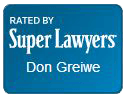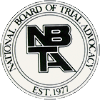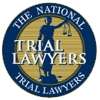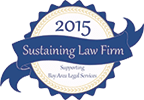News & Resources
5 Defendants to Sue in a Car Accident Case
Get Help from an Experienced Tampa Car Accident Lawyer
If you’ve been hurt in a car accident in Florida, then you may be entitled to significant damages as compensation for your injuries. “Who” you bring a claim against (e.g., the defendants) is fundamentally important to the lawsuit itself — it will influence the likelihood of success in the dispute, as well as how much compensation you can potentially claim.
Given the complexity of such a dispute, it is important to consult with an experienced Tampa car accident lawyer for guidance on how to proceed. Your attorney will take the time to evaluate the case and identify potential defendants, then develop a legal strategy for securing the compensation you deserve.
For now, however, let us take a closer look at five defendants you might be entitled to sue in a car accident case.
1) Driver
The driver who caused the accident is the most obvious defendant in a typical car accident case, as it was likely their misconduct (whether negligence or intentional misconduct) that led to the accident. Suing the driver is not always straightforward, however. In some cases, the defendant-driver may not have sufficient insurance coverage to pay compensation for your damages. They might also lack the personal resources to cover your damages.
When the driver lacks proper insurance coverage/resources, you may have to explore alternative defendants who have the insurance or resources necessary to fully cover your damages.
2) Vehicle Owner
In Florida, the owner of a car may be held vicariously liable in an accident caused by the driver's negligence, even if the vehicle owner did not engage in any misconduct.
For example, suppose that a speeding driver on the highway injures you. You investigate the case further and realize that the driver borrowed the car from their friend, who owns the car. You could ostensibly sue the owner for all the damages owed by the driver. This gives you access to compensation through their insurance coverage, opening possibilities for recovery.
It is worth noting that if the driver engaged in reckless or intentional misconduct (i.e., road rage leading to an intentional collision), the owner could not be held liable. You will have to show that the accident was caused by the “negligence” of the driver.
3) Employer
Employers can be held liable for damages in accidents caused by their employees under two different theories of liability:
- Vicarious liability — where the employee committed a negligent act (i.e., by speeding or by otherwise driving negligently) in causing the accident, the employer can be found vicariously liable for all the damages owed by the employee-driver. It is not necessary to show that the employee was using a company vehicle. All you will need to show is that the employee was operating their vehicle within the course and scope of their employment. In other words, that they were operating their vehicle to fulfill a work-related responsibility.
- Negligent hiring/supervision — where the employee engaged in misconduct and caused you to be injured in an accident, you can recover damages from the employer for their negligent hiring or supervision of that employee. For example, if the employee was a known alcoholic, then you could sue the employer for negligently hiring a known alcoholic to work as a delivery driver for their company.
4) Car Manufacturer
If the accident involved a defective piece of equipment (i.e., the brakes of a car or a windshield wiper), then you can sue the manufacturer for damages through a product defect lawsuit.
In a product defect lawsuit, it is not necessary to prove that the manufacturer engaged in negligent misconduct. You must show that the manufacturer created a defective product through a defective design or a defective manufacturing process. A product is defective if it leads to an unreasonable risk of injury. For example, if brakes are manufactured with weak materials that degrade rapidly, they might often malfunction. In this scenario, the brakes would likely be considered defective (and it could lead to manufacturer liability).
Product defect claims can be rather challenging to litigate — though the law makes it “easier” for plaintiffs to bring a claim, manufacturers have extensive resources at their disposal and tend to be aggressive in defending against lawsuits. As such, experienced legal representation is critical for success.
5) Property Owner
Property owners (private and public) can be held liable if some aspect of the property contributed to a car accident.
For example, suppose that a tree falls from a property adjacent to a public roadway. The tree falls on a car, causing injuries to you and the other passengers. You would potentially have a claim against the private property owner (on whose property the tree resides). If the tree were diseased, you could argue that they had a responsibility to inspect the trees and “correct” the issues before the tree fell — whether by treatment or by cutting down the tree. Failure to do so may qualify as negligence and give you an actionable claim against the property owner under Florida law.
Contact Alley Clark Greiwe for Legal Assistance
At Alley, Clark & Greiwe, our attorneys boast decades of experience advocating on behalf of car accident plaintiffs. We understand how confusing it can be to be involved in an accident. Without legal assistance, it can be difficult to understand whether you have an actionable claim under the law. Our attorneys work closely with clients to identify potential claims and follow-through.
Of course, every case is different.
We are committed to investing time and resources towards every client’s case to ensure that we have unique insight into their dispute. With this information at hand, we learn how best to litigate their case to secure the best possible results.
Ready to speak to an experienced Tampa car accident lawyer at our firm? Call us at (800) 840-0977 or contact us online to arrange a free initial consultation. We look forward to speaking with you.




















